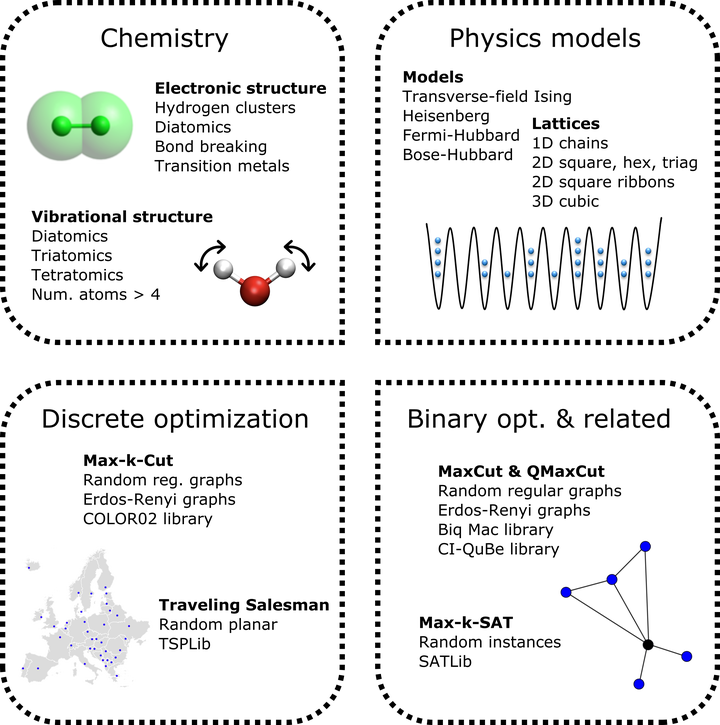 Overview of HamLib dataset.
Overview of HamLib dataset.
Abstract
In order to characterize and benchmark computational hardware, software, and algorithms, it is essential to have many problem instances on-hand. This is no less true for quantum computation, where a large collection of real-world problem instances would allow for benchmarking studies that in turn help to improve both algorithms and hardware designs. To this end, here we present a large dataset of qubit-based quantum Hamiltonians. The dataset, called HamLib (for Hamiltonian Library), is freely available online and contains problem sizes ranging from 2 to 1000 qubits. HamLib includes problem instances of the Heisenberg model, Fermi-Hubbard model, Bose-Hubbard model, molecular electronic structure, molecular vibrational structure, MaxCut, Max-k-SAT, Max-k-Cut, QMaxCut, and the traveling salesperson problem. The goals of this effort are (a) to save researchers time by eliminating the need to prepare problem instances and map them to qubit representations, (b) to allow for more thorough tests of new algorithms and hardware, and (c) to allow for reproducibility and standardization across research studies.